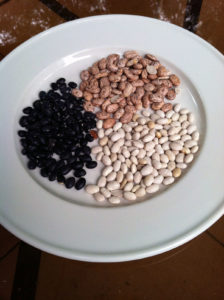 False.
False.
Roughly 3% OF adults identify themselves as vegetarians because they eat a plant-based diet. However, there are different types of vegetarians.
Vegans, for example, don’t eat any food of animal origin. Lacto-vegetarians will consume dairy products such as milk, cheese, and yogurt. Lacto-ovo- vegetarians eat eggs in addition to dairy products, and pesco-vegetarians will eat dairy, eggs, and fish.
There are health benefits associated with following a vegetarian diet. They tend to be lower in saturated fat and cholesterol, higher in fiber, and higher in vitamins and antioxidants. Plus vegetarians tend to keep their body weight at healthier levels.
If you do much reading in the area of nutrition, you will likely see that many people—especially athletes and vegetarians—are obsessed with protein intake. More than a few harbor an unfounded concern that we are not getting enough protein. In fact, most research and registered dietitians report that just the opposite is true: the average person appears to get adequate amounts of protein, and that holds true for vegetarians as well.
In a study published in the European Journal of Nutrition, Waldmann and colleagues (2003) examined dietary intake of adult vegans. They reported that their subjects’ mean carbohydrate, fat and protein intakes were 57.1%, 29.7% and 11.6% respectively, meeting current recommendations.
The Institute of Medicine recommends that adults get 45–65% of their calories from carbohydrates, 20–35% from fat and 10–35% from protein.
Vegetarians commonly consume from 10–12% of their calories from protein; that number is 14–18% for non-vegetarians. Both fall within recommended guidelines.
Some folks have the misconception that only foods from animal sources contain protein, which is not true. For example, a cup of oatmeal contains 6 grams of protein, a cup of cooked spinach contains 5 grams of protein, two slices of whole-wheat bread contain 5 grams of protein, and four ounces of tofu contain about 10 grams of protein.
Amino acids are commonly referred to as the building blocks of protein. There are 20 common amino acids, but our bodies make only 11 of these. We must get the other nine, called essential amino acids, from our diets.
Nutritionists used to believe that the best way to take in these essential amino acids was from animal sources or by combining certain grains, vegetables, legumes and nuts based on the essential amino acids they contained (some foods are higher in certain essential amino acids than others).
Today most nutritional experts shy away from the food-combination approach, as it can get complex and confusing. They simply recommend that vegetarians eat a wide variety of healthy foods throughout the day: fruits, vegetables, nuts, seeds, legumes and whole grains.
Waldmann, A., Koschizke, J., Leitzmann, C., & Hahn, A: Dietary intakes and lifestyle factors of a vegan population in Germany: results from the German Vegan study. European Journal of Clinical Nutrition (2003), Vol 57, pp. 947-955.
